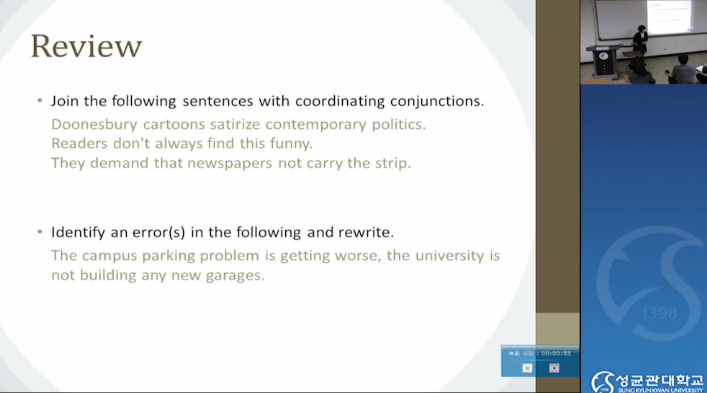The purpose of this study is to examine the effects of writing prompts on EFL students’ English writing performance in accordance with their writing proficiency. To fulfill this purpose, first, 238 college students were divided into three levels de...
http://chineseinput.net/에서 pinyin(병음)방식으로 중국어를 변환할 수 있습니다.
변환된 중국어를 복사하여 사용하시면 됩니다.
- 中文 을 입력하시려면 zhongwen을 입력하시고 space를누르시면됩니다.
- 北京 을 입력하시려면 beijing을 입력하시고 space를 누르시면 됩니다.

Effects of Prompts on EFL Students’ English Writing Performance Based on Their Writing Proficiency
한글로보기https://www.riss.kr/link?id=A101430102
- 저자
- 발행기관
- 학술지명
- 권호사항
-
발행연도
2015
-
작성언어
-
- 주제어
-
KDC
374
-
등재정보
KCI등재
-
자료형태
학술저널
- 발행기관 URL
-
수록면
47-65(19쪽)
- 제공처
-
0
상세조회 -
0
다운로드
부가정보
다국어 초록 (Multilingual Abstract)
To fulfill this purpose, first, 238 college students were divided into three levels depending upon their pre-writing test results (high, mid, and low). They were also asked to write one essay using two different prompts (bare and prose) each and take the pre- and post-writing tests. Finally, their writing products were rated and analyzed using both the holistic and the analytic scoring rubric. The results are as follows: first, it was found that there was a significant difference in the students’ writing scores of the pre- and post-writing tests, which implies that consecutive
writing practice had a positive effect on the development of the students’ writing proficiency without any formal instruction on writing; second, the students got higher scores when using the prose prompt than the bare one, which suggests that the prose prompt sheds more light on the students’ writing performance; finally, they showed different writing performance depending upon their writing proficiency. Based upon these results, the following suggestions can be made: first, more opportunities to carry out writing tasks should be provided to EFL learners, especially to learners in the low level; and second, taking their English writing proficiency into account, a wider selection of prompts need to be provided to help develop their writing abilities.
The purpose of this study is to examine the effects of writing prompts on EFL students’ English writing performance in accordance with their writing proficiency.
To fulfill this purpose, first, 238 college students were divided into three levels depending upon their pre-writing test results (high, mid, and low). They were also asked to write one essay using two different prompts (bare and prose) each and take the pre- and post-writing tests. Finally, their writing products were rated and analyzed using both the holistic and the analytic scoring rubric. The results are as follows: first, it was found that there was a significant difference in the students’ writing scores of the pre- and post-writing tests, which implies that consecutive
writing practice had a positive effect on the development of the students’ writing proficiency without any formal instruction on writing; second, the students got higher scores when using the prose prompt than the bare one, which suggests that the prose prompt sheds more light on the students’ writing performance; finally, they showed different writing performance depending upon their writing proficiency. Based upon these results, the following suggestions can be made: first, more opportunities to carry out writing tasks should be provided to EFL learners, especially to learners in the low level; and second, taking their English writing proficiency into account, a wider selection of prompts need to be provided to help develop their writing abilities.
목차 (Table of Contents)
- I. INTRODUCTION
- II. LITERATURE REVIEW
- III. METHOD
- IV. RESULTS AND DISCUSSION
- V. CONCLUSION
- I. INTRODUCTION
- II. LITERATURE REVIEW
- III. METHOD
- IV. RESULTS AND DISCUSSION
- V. CONCLUSION
동일학술지(권/호) 다른 논문
-
Exploring Instructors’ and Students’ Perceptions of an English Science Program for Gifted Learners
- 한국영어교과교육학회
- Eun-Hyun Kim
- 2015
- KCI등재
-
- 한국영어교과교육학회
- Gyoo-Mi Kim
- 2015
- KCI등재
-
가상교실과 토론방을 활용한 영어교사교육을 위한 온라인 강좌 연구: 학습자 인식
- 한국영어교과교육학회
- 박수정(Park Su-Jung)
- 2015
- KCI등재
-
- 한국영어교과교육학회
- 이문복(Lee Moon-Bok), 신동광(Shin Dong-Kwang)
- 2015
- KCI등재




 스콜라
스콜라






